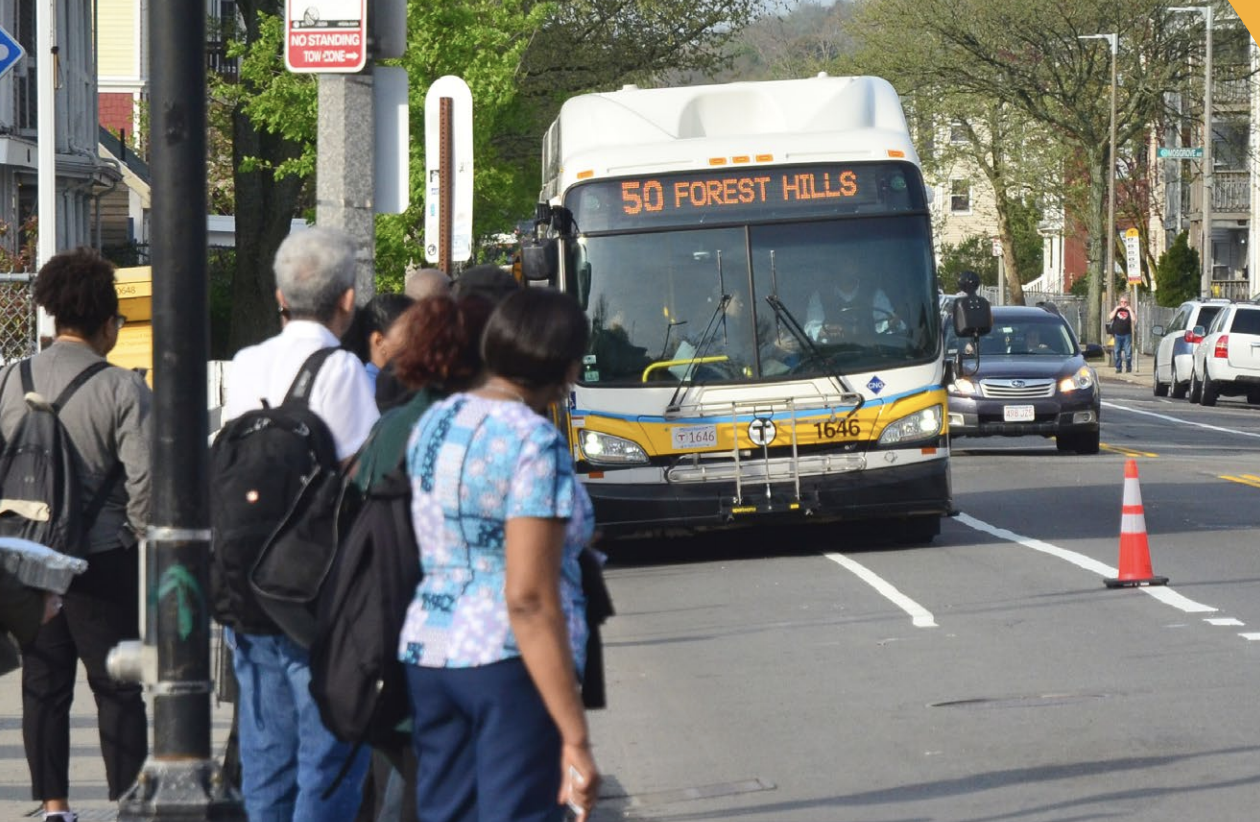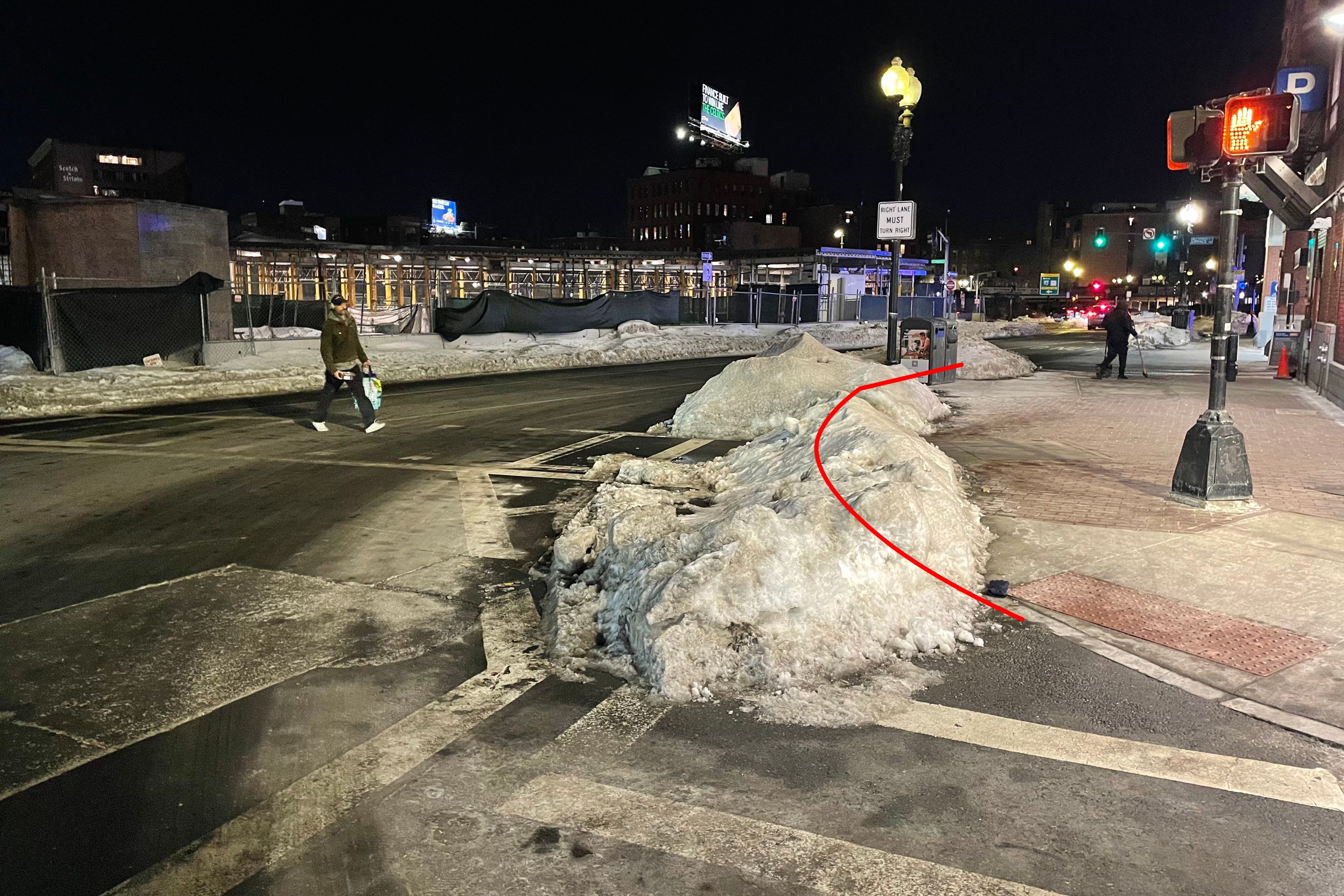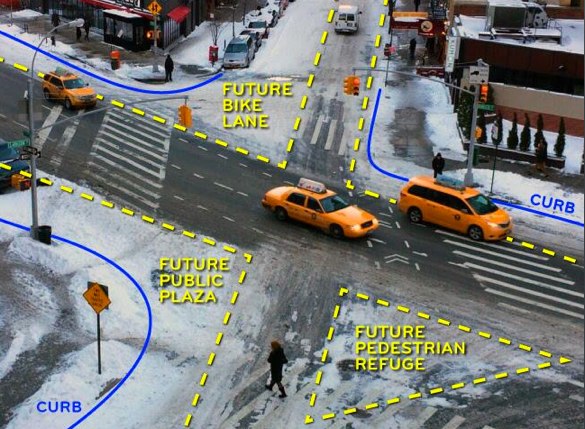A new report from the LivableStreets Alliance is drawing renewed attention to inequities in the region's bus network, which forces riders of color to lose significantly more time getting around the region than their white counterparts.
The report, titled "64 Hours: Closing the Bus Equity Gap," calls on the MBTA to aggressively prioritize equity in its route planning and make significant expansions and improvements to its bus service, particularly on routes that serve high proportions of people of color.
The title refers to a figure from the 2017 "State of Equity" report by MAPC, a regional planning agency. That report concluded that Black bus riders spent, on average, 64 more hours every year traveling than white bus riders (and Latinx bus riders lost an average of 10 hours a year in longer travel times compared to white riders).
"Failing bus service is one of the greatest disparities threatening the region, and the scope of the crisis requires the full attention of state and local policymakers in order to end transit inequities once and for all in Metro Boston," writes LivableStreets in an executive summary.
The report aims to influence the MBTA's ongoing "Better Bus Project," an agency-led effort to redesign routes and reverse recent declines in bus ridership.
The biggest immediate barrier to improved bus service is a shortage of buses and bus garages at the MBTA.
LivableStreets estimates that the agency is already short by 67 buses to meet its existing service commitments, which specify having buses run every 10 to 15 minutes on 15 "key" bus routes, and every 30 to 60 minutes on other routes.
To make bus service more equitable, LivableStreets suggests that the "key bus route" service standards should be expanded to more lines that have high rates of ridership among people of color, in transit-dependent neighborhoods like Roxbury, Mattapan and Chelsea. Meeting that goal would require around 200 new buses, plus a hiring spree for new bus operators and mechanics.
And before the agency can shop for new buses, it will need to figure out where to park them: the MBTA's garage facilities are over capacity, and several are functionally obsolete.
Building new garages across the region will be a time-consuming but necessary condition for any bus network expansion, but to date, the MBTA's governing board has yet to discuss any specific plans for developing new bus garages.
These practical limitations will take years to resolve. In the meantime, LivableStreets urges local leaders to continue recent work to make better use of the existing bus fleet, by giving buses exclusive lanes and prioritization at traffic signals.
LivableStreets commented on its report at today's MBTA Fiscal and Management Control Board (FMCB) meeting, when board members also received an update on the "Better Bus" project and bus facilities planning.
"In reviewing other transit systems nationwide, one thing is crystal clear: bus network redesigns that are paired with considerable increases in service are by far the most successful. There is no cost-neutral solution that will not compound the existing inequity in our system," said Stacy Thompson, LivableStreets Executive Director, in her public testimony (disclosure: Thompson is also a member of the StreetsblogMASS Board of Directors).






